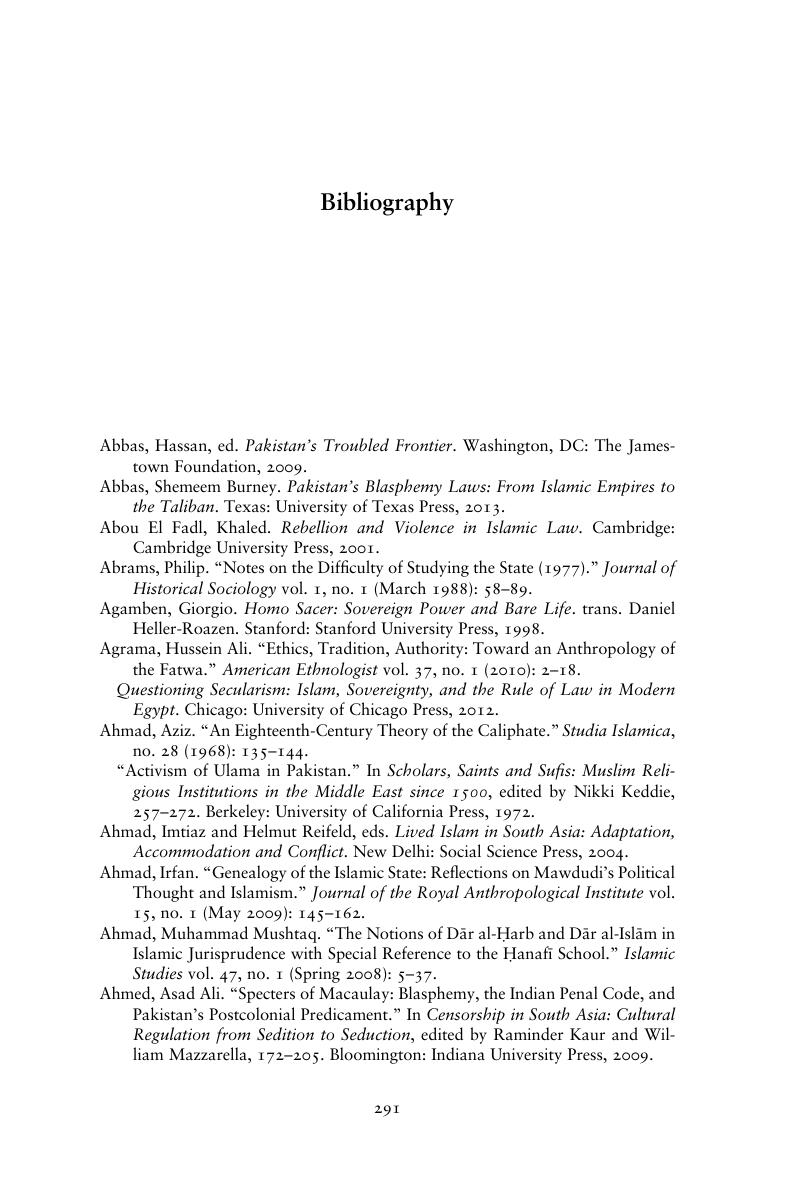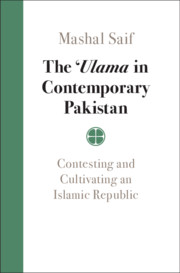Book contents
- The ‘Ulama in Contemporary Pakistan
- The ‘Ulama in Contemporary Pakistan
- Copyright page
- Dedication
- Contents
- Acknowledgments
- Note on Translation and Transliteration
- Introduction
- 1 The Clerics and the Council
- 2 Sovereignty between God and the State
- 3 Questioning State Identity and Legitimacy
- 4 Seeking Security
- 5 Minority Aspirations and the State
- Conclusion
- Bibliography
- Index
- References
Bibliography
Published online by Cambridge University Press: 20 October 2020
- The ‘Ulama in Contemporary Pakistan
- The ‘Ulama in Contemporary Pakistan
- Copyright page
- Dedication
- Contents
- Acknowledgments
- Note on Translation and Transliteration
- Introduction
- 1 The Clerics and the Council
- 2 Sovereignty between God and the State
- 3 Questioning State Identity and Legitimacy
- 4 Seeking Security
- 5 Minority Aspirations and the State
- Conclusion
- Bibliography
- Index
- References
Summary

- Type
- Chapter
- Information
- The 'Ulama in Contemporary PakistanContesting and Cultivating an Islamic Republic, pp. 291 - 309Publisher: Cambridge University PressPrint publication year: 2020
References
Bibliography
Aaj News
AlJazeera
Asia News
British Broadcasting Corporation
Daily Times
Dawn
The Express Tribune
Fars News Agency
The Friday Times
The Guardian
IBCUrdu
Jang
Khaleej Times
Mahanama al-Muntazar
Mashrabe Naab
National News
The New York Times
Al-Shari‘a
The Times of India
Pakistan Today
Reuters
Roznama Pakistan
Samaa
ShiaTV
Su’ai Hijaz
The Telegraph
Voice of America
Washington Post
Aaj News
AlJazeera
Asia News
British Broadcasting Corporation
Daily Times
Dawn
The Express Tribune
Fars News Agency
The Friday Times
The Guardian
IBCUrdu
Jang
Khaleej Times
Mahanama al-Muntazar
Mashrabe Naab
National News
The New York Times
Al-Shari‘a
The Times of India
Pakistan Today
Reuters
Roznama Pakistan
Samaa
ShiaTV
Su’ai Hijaz
The Telegraph
Voice of America
Washington Post
Websites and interviews are not included in this bibliography.



